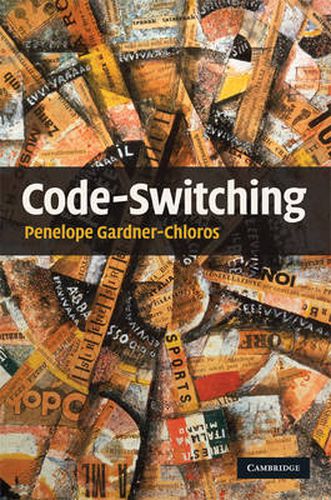Readings Newsletter
Become a Readings Member to make your shopping experience even easier.
Sign in or sign up for free!
You’re not far away from qualifying for FREE standard shipping within Australia
You’ve qualified for FREE standard shipping within Australia
The cart is loading…






It is quite commonplace for bilingual speakers to use two or more languages, dialects or varieties in the same conversation, without any apparent effort. The phenomenon, known as code-switching, has become a major focus of attention in linguistics. This concise and original study explores how, when and where code-switching occurs. Drawing on a diverse range of examples from medieval manuscripts to rap music, novels to advertisements, emails to political speeches, and above all everyday conversation, it argues that code-switching can only be properly understood if we study it from a variety of perspectives. It shows how sociolinguistic, psycholinguistic, grammatical and developmental aspects of code-switching are all interdependent, and findings in each area are crucial to others. Breaking down barriers across the discipline of linguistics, this pioneering book confronts fundamental questions about what a ‘native language’ is, and whether languages can be meaningfully studied outside of the individuals who use them.
$9.00 standard shipping within Australia
FREE standard shipping within Australia for orders over $100.00
Express & International shipping calculated at checkout
It is quite commonplace for bilingual speakers to use two or more languages, dialects or varieties in the same conversation, without any apparent effort. The phenomenon, known as code-switching, has become a major focus of attention in linguistics. This concise and original study explores how, when and where code-switching occurs. Drawing on a diverse range of examples from medieval manuscripts to rap music, novels to advertisements, emails to political speeches, and above all everyday conversation, it argues that code-switching can only be properly understood if we study it from a variety of perspectives. It shows how sociolinguistic, psycholinguistic, grammatical and developmental aspects of code-switching are all interdependent, and findings in each area are crucial to others. Breaking down barriers across the discipline of linguistics, this pioneering book confronts fundamental questions about what a ‘native language’ is, and whether languages can be meaningfully studied outside of the individuals who use them.